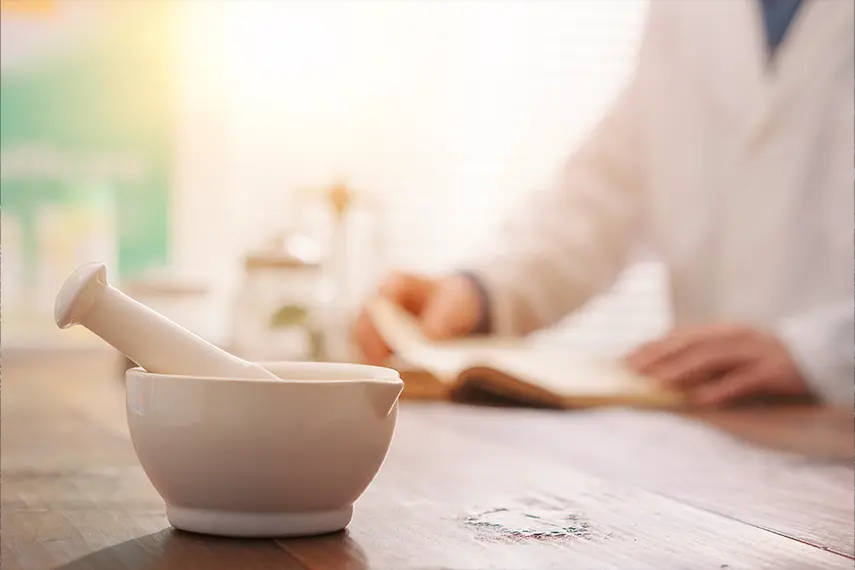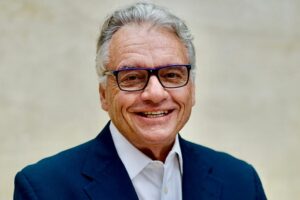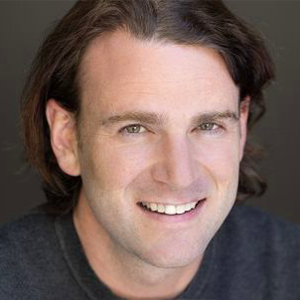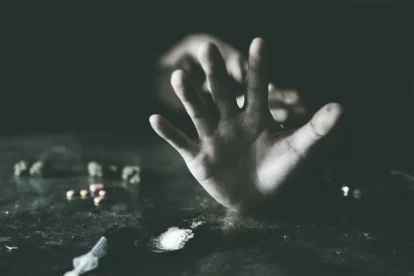Guest Blog: A Possible Cure for Addiction and Traumatic Brain Injury

KEY POINTS
- Ibogaine has been used in some countries for many years, but it is not a legal drug in the U.S.
- Researchers have found that ibogaine can reverse drug withdrawal and can end drug craving for some people.
- Ibogaine has improved symptoms of PTSD and traumatic brain injury.
- Psychedelic medications are being tested for safety and efficacy for various psychiatric conditions.
Guest Author Dr. Mark Gold

Dr. Mark S. Gold is an author, inventor, and mentor who has had over 1,000 peer-reviewed publications since beginning his academic career at the University of Florida College of Medicine and Yale University School of Medicine in the 1970s. He is best known for developing the pioneering translational laboratory to human research methods of discovery for addiction and psychiatry. He has over 30,000 academic research citations and an H index of 93. He has made impactful contributions to psychiatry, neuroendocrinology, radiation oncology, transplant biology, orthopedic surgery, public health, pain, obesity medicine, and substance use disorders. Gold was a founding member of the McKnight Brain Institute.
Exploring the treatment potential of the psychedelic ibogaine.
 New treatments for addiction are urgently needed. According to the Centers for Disease Control and Prevention (CDC), 107,941 people died from drug overdoses in 2022, an age-adjusted rate of 32.6 deaths per 100,000 people. The rate has nearly quadrupled since 2002, when it was 8.2. Fortunately, researchers have made it important to consider the treatment potential of ibogaine and its derivatives.
New treatments for addiction are urgently needed. According to the Centers for Disease Control and Prevention (CDC), 107,941 people died from drug overdoses in 2022, an age-adjusted rate of 32.6 deaths per 100,000 people. The rate has nearly quadrupled since 2002, when it was 8.2. Fortunately, researchers have made it important to consider the treatment potential of ibogaine and its derivatives.
lbogaine is one of the psychoactive indole alkaloids found in the West African shrub Tabernanthe iboga. Since its introduction to Western medicine, the psychedelic agent has been used as an adjunct for psychotherapy and also for its anti �-addiction properties. In contrast, current treatments for opioid use disorder (OUD) as well as for dependence on cocaine and methamphetamine, as reviewed by Yale’s Brian Fuerhlein and Jean Lud Cadet of the National Institute on Drug Abuse (NIDA), are limited in efficacy, don’t accelerate brain recovery, and don’t return people to where they were before drug use became a raging addiction.
Looking Back
Nonphysician Howard Lotsof discovered and pioneered ibogaine in the treatment of substance addictions. In 1962, at age 19, Lotsof was addicted to heroin when he accidentally discovered the anti-addictive effects of ibogaine and subsequently became a crusader for the substance. Describing his first ibogaine experience, Lotsof said, “Afterwards, I was walking, and I looked at this tree, and as I looked at it, I realized I no longer had any fear of death. Also that I was no longer addicted to narcotics.”
Beginning in 1985, Lotsof reported on individuals using ibogaine for opioid detoxification as well as for abrupt discontinuation of addiction to opioids, cocaine, nicotine, and polydrug addictions. Early reports claimed that ibogaine therapy resulted in 25 percent of patients remaining drug-free without craving for six months. Only 20 to 30 percent of patients returned to drug use within a month following treatment.
After meeting Lotsof in the 1990s, medical researcher Deborah Mash performed groundbreaking research on ibogaine treatment at the University of Miami, spotlighting the potential for ibogaine in treating opioid and other substance use disorders. Mash reported results for a small case series following lower oral doses of ibogaine in patients who had undergone pre-treatment screening and physical evaluation. After treatment, patients reported diminished opioid withdrawal scores and decreased craving, as well as significantly improved mood.
How Does Ibogaine Work?
Ibogaine reduces psychostimulants’ free access to dopaminergic pleasure systems. It attenuates the symptoms of morphine withdrawal but is not an opioid. Ibogaine has numerous effects on the body, brain, dopamine, serotonin, norepinephrine, and other receptors in the body and brain; the bulk of evidence links the NMDA-antagonist action of ibogaine to its “anti-addictive” properties.
Problematic Side Effects
The downsides of ibogaine are its major side effects. In addition to inducing frightening hallucinations during the up-to-24-hour psychedelic trip, ibogaine can slow the heart, hamper muscle coordination, and cause nausea and vomiting. The cardiovascular risks are the most daunting, and the use of the drug in foreign centers has been implicated in cardiac arrhythmia and death.
Exciting New Developments
In a new study, Yale researchers worked with researchers at the University of California San Francisco (UCSF), the University of North Carolina at Chapel Hill, Duke University, and the Medical University of Vienna. Gary Rudnick and his colleagues identified two compounds that, in experiments with mice, were more biologically targeted than ibogaine but, like the hallucinogen, ameliorated symptoms of depression, anxiety, and opioid withdrawal. However, unlike ibogaine, they did not cause heart toxicity.
Dr. Mash, who started the Healing Visions Ibogaine Clinic on St. Kitts in 1995., had treated more than 300 patients by 2003 and noted that up to 50 percent of them remained free from drugs after treatment. She is a leading expert in this psychoactive compound, working today as founder and CEO of DemeRx, a pharmaceutical company researching ibogaine and the related noribogaine for addiction treatment. In 2024, Gilgamesh Pharmaceuticals, a clinical-stage neuroscience company, announced it received a multi-year $14 million grant from the National Institute on Drug Abuse (NIDA) to develop GM-3009, its novel, cardiac-safe ibogaine analog for the treatment of substance use disorders.
Traumatic Brain Injury and Ibogaine
Nolan Williams, M.D., an associate professor of psychiatry and one of the world’s leading ibogaine experts, pioneered the discovery of the benefits of ibogaine in neurology, brain injury, and military traumatic brain injuries. Williams and his researchers found that, when combined with magnesium to protect the heart, ibogaine was effective at safely reducing symptoms of post-traumatic stress disorder (PTSD), as well as anxiety and depression; it also improved functioning in veterans with traumatic brain injury (TBI). His new study, reported in Nature Medicine, provided dramatic data on 30 veterans of U.S. special forces.
Williams and his colleagues at Stanford Medicine teamed up with VETS, Inc., a foundation facilitating psychedelic-assisted therapies for veterans. With support from VETS, 30 special-operations veterans with a history of TBI and repeated blast exposures, almost all with severe psychiatric symptoms and functional disabilities, independently scheduled themselves for treatment with magnesium and ibogaine. Before treatment, researchers gauged participants’ levels of PTSD, anxiety, depression, and overall functioning based on a combination of self-report questionnaires and clinician-administered assessments. The participants traveled to a clinic in Mexico and received oral ibogaine and magnesium. The veterans returned to Stanford Medicine for post-treatment assessment.
At the beginning of the study, the participants had clinically significant levels of disability measured by the World Health Organization Disability Assessment Scale 2.0, an instrument assessing disability in cognition, mobility, self-care, getting along, life activities, and community participation. Twenty-three of the subjects met the criteria for PTSD, while 14 had an anxiety disorder and 15 had an alcohol use disorder. In their lifetimes, 19 of the participants had been suicidal and seven had attempted suicide.
On average, treatment with ibogaine immediately led to significant improvement in PTSD, depression, and anxiety. Moreover, the effects persisted at least one month after treatment—the study’s endpoint. Before treatment, the veterans had an average disability rating of 30.2 on the disability scale, equivalent to mild to moderate disability. One month after treatment, the rating plummeted to 5.1, indicating no disability.
Similarly, one month after treatment, participants experienced an average reduction of 88 percent in PTSD symptoms, an 87 percent reduction in depression symptoms, and an 81 percent decrease in anxiety symptoms. Formal cognitive testing also revealed improved concentration, information processing, memory, and impulsivity. Importantly, there were no serious side effects and no instances of heart problems previously linked to ibogaine.
Williams’ ibogaine work began in 2018 with a lengthy planning period involving coordination with clinics in Mexico and multiple funders in the U.S. He said, “Ibogaine’s global supply comes from the iboga root bark, primarily sourced from Gabon. Sustainable forms of ibogaine and other iboga alkaloids with potentially less cardiotoxicity are of great interest to me, personally, as well as psychopharmaceutical development in general.” He believes his new work could have a watershed effect regarding funding for TBI and wounded-warrior treatment development and research. “No other drug has ever been able to alleviate the functional and neuropsychiatric symptoms of traumatic brain injury… The results are dramatic, and we intend to study this compound further,” Williams notes.
Conclusion
Neuropharmacologist Phil Skolnick reminded us in 1995 that ibogaine had been studied for 100 years and was believed to have anti-addiction properties. Psychedelic medications have had a renaissance, with MDMA, psilocybin, LSD, and now ibogaine being taken seriously as potential medications. If rigorous scientific studies can show ibogaine efficacy and safety and the possibility of curing addiction in some individuals without cardiac toxicity, the FDA will likely approve ibogaine as a treatment, subject to various conditions to be determined. Now, with these new data, ibogaine may also offer hope for veterans and others with PTSD and TBI.
References
- Cherian KN, Keynan JN, Anker L, Faerman A, Brown RE, Shamma A, Keynan O, Coetzee JP, Batail JM, Phillips A, Bassano NJ, Sahlem GL, Inzunza J, Millar T, Dickinson J, Rolle CE, Keller J, Adamson M, Kratter IH, Williams NR. Magnesium-ibogaine therapy in veterans with traumatic brain injuries. Nat Med. 2024 Feb;30(2):373-381. doi: 10.1038/s41591-023-02705-w. Epub 2024 Jan 5. PMID: 38182784; PMCID: PMC10878970.
- Popik P, Layer RT, Skolnick P. 100 years of ibogaine: neurochemical and pharmacological actions of a putative anti-addictive drug. Pharmacol Rev. 1995 Jun;47(2):235-53. PMID: 7568327.
- da Costa SC, Oesterle T, Rummans TA, Richelson E, Gold M. Psychedelic drugs for psychiatric disorders. J Neurol Sci. 2022 Sep 15;440:120332. doi: 10.1016/j.jns.2022.120332. Epub 2022 Jul 5. PMID: 35841696.






